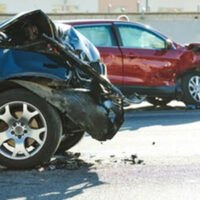What Does It Mean to Be a “No Fault” State?

Florida is one of only ten states that has personal injury protection (no fault) auto insurance. So, what exactly does “no-fault” mean, and how does it affect you if you’re involved in a car accident? The “no-fault” law means that, in the event of a car accident, both parties can make claims with their own auto insurance policies regardless of who was at fault. To cover this, all Florida drivers must have Personal Injury Protection (PIP) insurance included in their car insurance policy.
Any vehicle with a current Florida registration must:
- be insured with PIP and PDL insurance at the time of vehicle registration.
- have a minimum of $10,000 in PIP AND a minimum of $10,000 in PDL. Vehicles registered as taxis must carry bodily injury liability (BIL) coverage of $125,000 per person, $250,000 per occurrence and $50,000 for (PDL) coverage.
- have continuous coverage even if the vehicle is not being driven or is inoperable. Surrender the license plate/tag BEFORE cancelling your insurance.
- purchase the policy from an insurance carrier licensed to do business in Florida. (If you are new to the state, you may ask your agent to transfer your current insurance to a Florida policy.)
- maintain Florida insurance coverage continuously throughout the registration period regardless of the vehicle’s location.
PIP insurance provides injured drivers up to $10,000 in immediate coverage to reduce payment delay for injured drivers, as well as limit the utilization of the court system. PIP insurance covers medical treatment, lost wages and may also cover expenses incurred because of an accident, such as additional childcare if injuries prevent a parent from doing so. However, if injuries are serious enough that they meet the law’s “injury threshold,” or exceed PIP coverage, then one may choose to a file a lawsuit against the other driver.
Therefore, you should still make detailed notes of the crash. At any accident, it is a good idea to record the following:
- The other driver’s name, driver’s license number, insurance info
- License plates of both vehicles
- Pictures of the accident
- Any visible injuries to you and/or your passengers
- Obtain any official documents, especially police reports
If you were injured in a car accident, you may file a liability insurance claim or personal injury lawsuit. It is best to contact an experienced personal injury attorney to assist you with all of your legal needs.



